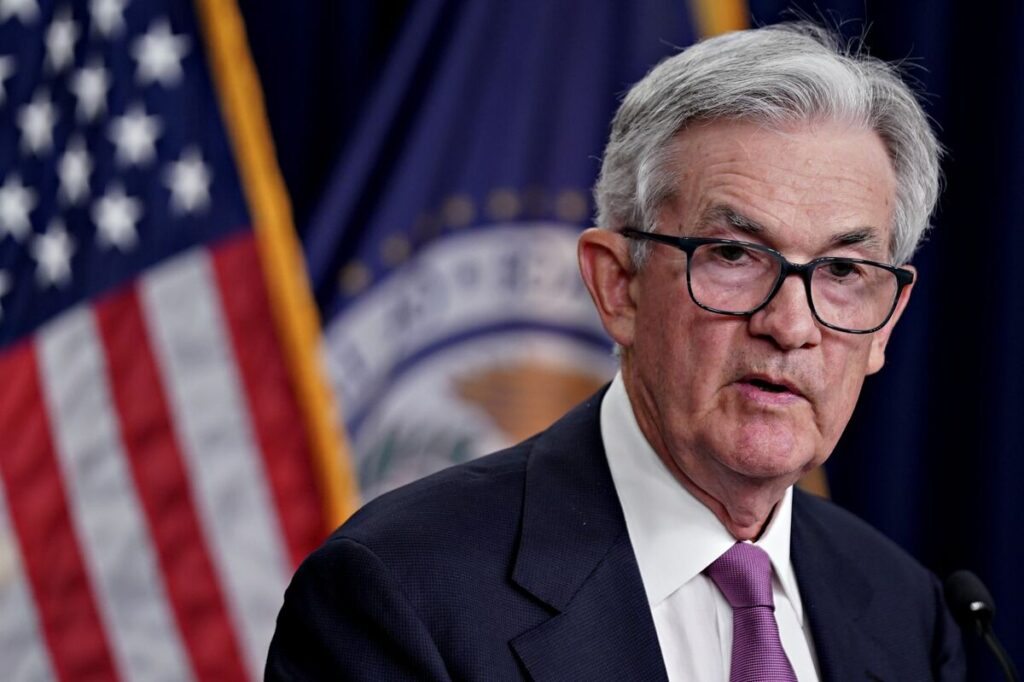The Financial Action Task Force (FATF), a UN agency committed to combating money laundering and terrorist financing, has again urged member nations to enact its “Travel Rule” to mitigate risks posed by cryptocurrencies.
Despite its introduction in 2019 and update in 2022, the rule has seen weak adoption among members, exposing potential regulatory gaps.
According to FATF, more than half of the members surveyed have not taken steps towards implementing the rule, intended to curb the anonymity of illegal crypto transactions.
These statistics indicate a significant gap in regulatory compliance, with the FATF highlighting that current non-compliance allows criminals to exploit “significant loopholes”.
In a bid to encourage wider adoption, FATF stressed the urgent need for countries to institute Anti-Money Laundering and Counter-Terrorism Financing measures in the cryptocurrency sector.
As of March 2022, only 29 of 98 jurisdictions passed the requirements of the travel rules, with only a small fraction of these jurisdictions commencing enforcement.
In the recent FATF meetings held in Paris, the members agreed to further updates to the rules.
As part of its continuous efforts to enhance compliance, FATF will publish a report on June 27, providing recommendations for member countries to close these regulatory loopholes.
The report will address North Korea’s illicit virtual asset activities, where it’s alleged that stolen funds are funneled into its Weapons of Mass Destruction program.
Other “emerging risks,” including stablecoins, decentralized finance, nonfungible tokens and peer-to-peer transactions, will also be covered.
Overall, FATF’s recent call reflects its commitment to ensuring a safer cryptocurrency environment and underscores the need for countries to take swift action to enforce regulation and prevent financial crimes.
Other Stories:
$PEPE Cryptocurrency Skyrockets Nearly 70% as Crypto Whales Drive Unprecedented Surge
ASX’s Failed Blockchain Upgrade Sparks Blame Game Between Digital Asset and Exchange
Belgian financial authorities have issued a directive to Binance, a leading cryptocurrency exchange, demanding the immediate cessation of all virtual currency services in the country.
The Belgian Financial Services and Markets Authority (FSMA) took this action after Binance failed to provide satisfactory information regarding its non-European Economic Area (EEA) companies.
The FSMA’s notice, released on June 23, highlighted that Binance’s offering of crypto-related services from non-EEA countries violated Belgian laws concerning Anti-Money Laundering and Combating the Financing of Terrorism.
Consequently, the financial regulator instructed Binance to halt all associated services in Belgium with immediate effect.
According to the FSMA, Binance had control over an estimated 19 companies located outside the EEA that were involved in its operations or technical support.
However, these companies were not disclosed in the terms and conditions agreed to by Belgian users when signing up for Binance’s services.
Despite multiple requests for information, the regulator found Binance’s responses inadequate in identifying the nature of services provided by these companies.
The FSMA stated, “Despite the opportunities offered to Binance on several occasions, the latter has failed to demonstrate, with due documentation and proof, that the exchange services between virtual currencies and legal currencies and the custody wallet services that it offers and provides within Belgium.
The exchange services which are carried out by means of a legal entity governed by the law of another member state of the European Economic Area that is duly authorized by its home member state to carry out these activities, including within Belgium.”
As part of the order, Binance is required to notify and return all cryptocurrencies and private keys held for its clients based in Belgium.
In response to the FSMA’s decision, a spokesperson for Binance expressed disappointment and confirmed that the company would review the regulator’s notice.
This move by the FSMA is part of a broader trend, with multiple national regulators taking action against Binance.
Notably, the United States Securities and Exchange Commission (SEC) is currently pursuing a lawsuit against the exchange and its U.S. entity for alleged violations of securities laws.
Additionally, in January 2022, a Belgian parliament member, Christophe De Beukelaer, made headlines by announcing his intention to receive his government salary in Bitcoin for a year.
Other Stories:
Etherscan Launches AI-Powered Code Reader, Polygon Proposes zkEVM Upgrade
Coinbase Takes Unconventional Legal Approach Ahead of SEC’s Crypto Crackdown
ECB Executive Slams Cryptocurrencies as Platforms for Gambling, Calls for Regulatory Safeguards
Circle and Sequoia Capital were among the top depositors at Silicon Valley Bank (SVB) before its collapse, according to a recent report by Bloomberg.
Other significant depositors included SVB itself, SVB Financial Group, Altos Labs, a biotechnology research company, and Kanzhun, a China-based firm.
Documents provided by the Federal Deposit Insurance Corporation (FDIC) indicated that Circle, Sequoia, and other depositors had billions of dollars covered.
This was an exception to the usual FDIC insurance limit of $250,000 per depositor. In response to the collapse of SVB, the Federal Reserve announced its collaboration with the FDIC to compensate insured and uninsured depositors.
Circle, a stablecoin issuer, held approximately $3.3 billion in deposits, while Sequoia Capital had around $1 billion.
The failure of SVB and subsequent collapses of Signature Bank and First Republic Bank have drawn attention to how deposit insurance is handled by regulators in the United States.
The Fed, FDIC, and Treasury Department deemed the coverage of SVB and Signature deposits over $250,000 as a “systemic risk exception” but are said to be considering an increase in the insurance limit.
Following SVB’s collapse in March and Circle’s confirmation of approximately $3.3 billion exposure to the bank, the value of its stablecoin, USD Coin, briefly deviated from the U.S. dollar.
However, Circle has since announced its plans to launch a native version of USDC on the Arbitrum network in June. This move aims to strengthen the stability and accessibility of its stablecoin.
The events surrounding SVB’s collapse have highlighted the importance of regulatory oversight and insurance in the cryptocurrency and banking sectors.
As the industry continues to evolve, discussions about risk management and investor protection are likely to shape future regulatory frameworks.
Other Stories:
Melanion Capital Launches Bitcoin Equities ETF on Euronext Amsterdam Stock Exchange
SHIB Coin Prediction: Will Shiba Inu Coin Reach $1?
Accenture Announces $3 Billion AI Investment After Wave of Layoffs
FTX, the collapsed cryptocurrency firm, has taken legal action against investment firms and individuals connected to its previous operations in an attempt to reclaim over $700 million.
The lawsuit was filed on June 22 in the United States Bankruptcy Court for the District of Delaware and includes 16 counts against the defendants.
Among the defendants named in the lawsuit are K5 Global, an incubator and investment company, as well as Mount Olympus Capital and SGN Albany Capital, along with their affiliated entities.
Michael Kives and Bryan Baum, co-owners of K5 Global, are also listed as defendants. Kives, a former talent agent and aide to Hilary Clinton, hosted a dinner party attended by FTX’s then-CEO, Sam Bankman-Fried (SBF), in 2022.
The lawsuit described the event as a gathering of prominent individuals, including celebrities, billionaires, and a former presidential candidate.
According to the lawsuit, FTX-affiliated crypto trading firm Alameda Research transferred $700 million to Kives, Baum, and K5 Global.
However, the transfers were disguised as transactions between shell companies SGN Albany and Mount Olympus Capital.
The lawsuit aims to recover the funds that were transferred from Alameda Research to SGN Albany Capital and subsequently from Kives, Baum, and SGN Albany Capital to Mount Olympus Capital.
The lawsuit alleges that these transfers were avoidable and lacked equivalent value. In bankruptcy law, an avoidable transaction can be reversed under relevant regulations.
The lawsuit also highlighted the close personal ties between Kives, Baum, and SBF, with Baum even having his own bedroom in FTX’s Bahamas residence.
After FTX’s collapse, the suit claims that Kives and Baum collaborated with Bankman-Fried on a strategy to secure a bailout for FTX Group and protect their own interests.
In response to the lawsuit, K5 Global issued a statement to Cointelegraph, dismissing the claims as meritless.
They emphasized that K5 is a venture capital firm with over $1 billion in assets under management and unrelated to any funds from Bankman-Fried and his affiliates.
The spokesperson stated that K5 believed they were engaging in a legitimate and mutually beneficial business relationship with Bankman-Fried and considered the lawsuit to be baseless.
The lawsuit includes nine counts related to fund transfers, with Kives and Baum individually charged with aiding and abetting breach of fiduciary duty and dishonest assistance. SGN Albany Capital is charged with unjust enrichment.
The legal proceedings will determine the validity of these claims and the potential recovery of the funds sought by FTX.
Other Stories:
Bitcoin Policy Institute Lambasts BTC Research Paper
Federal Reserve Pushing For Robust Oversight of Stablecoins as Form of Money
Car-Maker Announces Launch of its NFT Platform With Near Protocol
The International Monetary Fund (IMF) has emphasized the need for regulations on cryptocurrencies in certain countries while cautioning against an outright ban as an ineffective approach.
In a report published on June 22, the IMF examined the regulation and utilization of digital currencies in Latin America and the Caribbean region.
The report highlighted the diverse strategies employed by local governments to address the adoption of cryptocurrencies and central bank digital currencies (CBDCs).
El Salvador, for instance, made history by accepting Bitcoin as legal tender in September 2021, while the Bahamas became the pioneer in launching its own CBDC, known as the Sand Dollar, in October 2020.
The IMF identified Brazil, Argentina, Colombia, and Ecuador as countries where crypto regulation is currently in progress.
These nations ranked among the highest globally in terms of digital asset adoption, with the aim of assisting the unbanked population, facilitating faster and more affordable payment transfers, and more.
Furthermore, the report stated that most central banks in the region have either implemented or are considering the adoption of digital currencies.
The IMF stated, “If well designed, CBDCs can strengthen the usability, resilience, and efficiency of payment systems and increase financial inclusion in Latin America and the Caribbean.”
The organization suggested that a complete ban on crypto assets, although implemented by a few countries due to perceived risks, may not yield desired long-term results.
Instead, the region should concentrate on addressing the underlying factors driving demand for cryptocurrencies, such as the unmet digital payment needs of citizens.
Furthermore, improving transparency by recording crypto asset transactions in national statistics was highlighted as an important step.
It is worth noting that the IMF has frequently expressed its opposition to countries adopting cryptocurrencies as legal tender.
In a controversial move, Tobias Adrian, the director of the monetary and capital markets department at the IMF, proposed on June 19 the implementation of a payment system that utilizes a single ledger to record CBDC transactions.
This idea was met with strong criticism from many individuals within the crypto space.
The IMF has called for crypto regulation while cautioning against an outright ban in certain countries.
The organization believes that well-designed CBDCs can enhance payment systems, improve financial inclusion, and address citizens’ unmet digital payment needs.
Rather than banning cryptocurrencies, the IMF suggests focusing on the drivers of crypto demand and enhancing transparency by recording crypto asset transactions in national statistics.
Other Stories:
Federal Reserve Pushing For Robust Oversight of Stablecoins as Form of Money
Millions of Mexicans To Be Able To Pay Internet Bills Via Bitcoin Lightning Network
Car-Maker Announces Launch of its NFT Platform With Near Protocol
During the House Financial Services Committee’s semi-annual hearing on Federal Reserve policy, Chair Jerome Powell expressed the Federal Reserve’s perspective on stablecoins, stating that they are considered a form of money.
Powell’s remarks were made in response to Maxine Waters, the committee ranking member, who sought his opinion on the proposed stablecoin bill, a Republican-led initiative that would mark the first cryptocurrency legislation in the United States if enacted.
Waters raised concerns about the bill, pointing out that it would establish 58 different licenses with federal regulatory approval only granted to two of them.
The remaining licenses would be issued by states, territories, and other jurisdictions, a move that Waters criticized for taking state preemption to an unprecedented level. Powell, in response, asserted, “We do see payment stablecoins as a form of money, […] and we believe that it would be appropriate to have quite a robust federal role in what happens in stablecoin going forward.”
He further added that permitting significant private money creation at the state level would be an error.
Notably, Powell’s stance contrasts with that of Securities and Exchange Commission (SEC) Chair Gary Gensler, who previously emphasized the potential requirement for registration and regulation of stablecoins, excluding Bitcoin, which he considers a security.
Powell’s position also diverges from Commodity Futures Trading Commission (CFTC) Chair Rostin Behnam’s view that stablecoins should be categorized as commodities.
While the Federal Reserve lacks a readily accessible definition of money, it is generally regarded as a medium of exchange.
In contrast, commodities are defined under U.S. law as “goods and articles […] and all services, rights, and interests […] in which contracts for future delivery are presently or in the future dealt in.” The definition of a security is more complex.
Former CFTC Chair Chris Giancarlo also weighed in on the stablecoin bill, noting in an editorial in The Hill that all licensing authorities would possess the discretion to pressure stablecoin protocols into denying services to lawful but politically disfavored businesses.
Giancarlo referred to this as a “glaring omission” that could potentially enable a government policy resembling the Obama administration’s Operation Choke Point.
He proposed a simple solution to the problem: restricting government licensing authorities from selectively choosing among otherwise lawful activities and conditioning licensure on the stablecoin’s rejection of legal transactions.
Giancarlo cautioned that without this safeguard, stablecoin transactions would be at the mercy of the shifting political landscape in Washington.
Powell’s statements and the ongoing discussions surrounding the stablecoin bill reflect the growing recognition and significance of stablecoins in the realm of finance, prompting regulators to address their oversight and regulation to ensure stability and safeguard against potential risks.
Other Stories:
Moody’s Issues Warning About Lack of Bipartisan Support for Crypto Regulation in the US
Binance Takes Steps Towards Enhanced Bitcoin Transactions with Lightning Network Integration
Polygon Co-founder Suggests Proposal to Improve Security of PoS network
A joint effort among five United States enforcement agencies to combat crimes related to the darknet and digital currency has been formalized with the establishment of the Darknet Marketplace and Digital Currency Crimes Task Force.
The task force aims to target a range of “cryptocurrency-enabled crimes,” including drug trafficking, money laundering, personal information theft, and child exploitation.
Representatives from Homeland Security Investigations (HSI) Arizona, the Office for U.S. Attorneys, the Internal Revenue Service Criminal Investigation, the Drug Enforcement Administration, and the Postal Inspection Service recently signed a memorandum of understanding to solidify their collaboration.
Since 2017, these agencies have been working together and have witnessed a surge in the utilization of cryptocurrency for illicit activities.
In a statement, they highlighted the mission of the task force: to disrupt and dismantle criminal organizations that exploit the perceived anonymity of the darknet or employ digital currency for illegal purposes.
This move reflects a global trend of law enforcement agencies establishing specialized units dedicated to tackling crypto-related crimes. Interpol, for instance, established its own crypto crimes unit in late 2022, while Canadian cities have formed local task forces.
With 93 overseas locations in 56 countries, the HSI ensures that the new task force will have an international reach.
Within the United States, the Federal Bureau of Investigation created a Virtual Asset Exploitation Unit in February, which collaborates with the Justice Department’s National Cryptocurrency Enforcement Team.
Furthermore, the Securities and Exchange Commission expanded its Cyber Unit by nearly doubling its size in the previous year.
The magnitude of the challenge faced by law enforcement is substantial. Chainalysis estimates that more than 4,000 cryptocurrency whales possess unlawfully acquired funds, while crypto phishing attacks experienced a 40% increase last year.
Nevertheless, there is evidence that the concerted efforts of law enforcement are yielding results.
Other Stories:
Bitcoin Surpasses 50% Market Dominance For First Time in 2 Years
Fund Manager Predicts Bitcoin Will Reach $1 Million, Gives Bullish Coinbase Assessment
Cathie Wood, CEO and chief investment officer of ARK Invest, has expressed her bullishness on Coinbase stock and her belief that Bitcoin will reach $1 million.
Wood’s fund, Ark Innovation (ARKK), recently added to its position in Coinbase shares following the Securities and Exchange Commission’s (SEC) lawsuit against Binance, one of Coinbase’s main competitors.
ARKK purchased nearly 330,000 shares of COIN on June 6, 2023, totaling around $17 million. Two other ETFs, Ark Fintech Innovation ETF and Ark Next Generation Internet ETF, also increased their positions in Coinbase. Currently, the average entry price for all three funds ranges from $272.75 to $282.93, with a total position value of $1.77 billion.
However, the trade has resulted in significant losses so far, as COIN is currently trading at $53.90.
Wood’s optimism stems from the belief that the SEC’s enforcement actions will make Coinbase the dominant cryptocurrency exchange in the United States.
She argues that the allegations against Coinbase and Binance differ, with Binance potentially facing more serious charges related to the violation of the Commodity Exchange Act and regulations of the Commodity Futures Trading Commission.
Wood believes that Coinbase will emerge victorious, positioning itself as the leading player in the market.
While some analysts share Wood’s view, others do not.
The consensus among analysts is a Hold rating, with an average price target of $58.49, representing a potential 12% increase from current levels. Notable analysts such as John Todaro and Atlantic Equities have provided more bullish price targets of $70 for COIN.
Coinbase also faces a lawsuit from the SEC regarding the trading and staking of unregistered securities.
There are concerns that the exchange may have engaged in illegal activities, including investing in projects it planned to list on its platform before their public availability.
Regarding Bitcoin, Wood reiterated her belief that it serves as a hedge against inflation and holds a $1 million price target. Despite concerns about deflation, she remains bullish on Bitcoin due to its function as an antidote to counterparty risk in the traditional financial system.
Wood highlighted the upcoming Bitcoin halving event and the current accumulation phase in the market.
In summary, Cathie Wood’s bullishness on Coinbase stock and her $1 million Bitcoin price target are based on her expectations of Coinbase becoming the dominant U.S. cryptocurrency exchange and Bitcoin’s ability to outperform in different market environments. However, analysts’ opinions on COIN vary, and there are potential legal and regulatory challenges for Coinbase to overcome.
Other Stories:
Binance takes legal action against ‘Binance Nigeria Limited’
Bitcoin has achieved a significant milestone in the cryptocurrency market by reaching a 50% dominance for the first time in two years.
The measure of Bitcoin’s share in the total crypto market cap surpassed the 50% mark on June 19, settling at 49.9% at the time of this publication, as reported by TradingView data.
This achievement signifies that Bitcoin alone accounts for half of the entire crypto market’s valuation, which currently stands at $1.1 trillion.
With a market capitalization of $519 billion, Bitcoin’s dominance has seen a remarkable increase of over 10.5% since November 27, 2022. This surge can be attributed to investors seeking Bitcoin as a safe haven asset following the FTX crisis and growing regulatory scrutiny in the United States.
While Bitcoin’s dominance has soared, Ether (ETH), the second-largest cryptocurrency, has maintained a steady market share of around 20% for nearly a year. Together, the combined value of Bitcoin and Ether now represents approximately 70% of the total crypto market.
Michael Saylor, co-founder of MicroStrategy and a prominent advocate for Bitcoin, predicts that Bitcoin’s market dominance will surpass 80% in the coming years.
He anticipates that increasing regulatory pressure from the Securities and Exchange Commission (SEC) will lead to the fading away of stablecoins and most other crypto assets. According to Saylor, the industry will eventually be rationalized into a Bitcoin-focused market with only a handful of other Proof of Work tokens.
Saylor attributes the lack of significant institutional investment in the crypto space to the confusion and anxiety caused by the existence of 25,000 alternative cryptocurrencies that position themselves as alternatives to Bitcoin.
He emphasizes that Bitcoin is universally recognized as the digital commodity of the industry, drawing attention to SEC Chair Gary Gensler’s classification of Bitcoin as a commodity. In contrast, the SEC has designated 68 other cryptocurrencies as securities.
At the time of writing, Bitcoin is trading at $26,746, reflecting a 1.5% increase in the past 24 hours, according to the Cointelegraph Price Index. Despite a sense of fear prevailing in the crypto market, Bitcoin’s value has grown over 3% in the last week.
Crypto research firm Santiment suggests that the recent surge in Bitcoin’s price can be attributed to the announcement of Blackrock, a financial investment behemoth, filing for a Bitcoin spot ETF. This development has played a significant role in driving Bitcoin’s upward price momentum in recent days.
Bitcoin’s attainment of a 50% market dominance is a significant milestone, highlighting its position as the leading cryptocurrency and its growing influence within the broader crypto market.
Other Stories:
Elon Musk suspends ‘scam crypto account’ on Twitter
Australia’s crypto laws are at risk of being left behind by emerging markets such as Bermuda and Nigeria, according to Loretta Joseph, the chair of the Australian Digital Financial Standards Advisory Council (ADFSAC). Joseph emphasized the need for Australia to accelerate the development of crypto regulations to keep up with other countries.
While Australia’s Treasury conducted consultations earlier this year for its “token mapping” exercise to classify various crypto assets,
Joseph argued that the pace of regulatory development in the country remains too slow. She expressed her disappointment in seeing countries like Bermuda, Mauritius, and Nigeria moving faster in developing regulations, recognizing the positive impact of decentralized technology on global welfare.
To address the situation, Joseph stressed the importance of updating or adopting new laws to cover the evolving crypto ecosystem and foster innovation.
She cited her involvement in writing crypto policies and legislation for Bermuda as an example of successful collaboration between industry, academia, policymakers, and the government.
Establishing think tanks like ADFSAC, which brings stakeholders together, is crucial to facilitating dialogue and creating effective regulations.
In addition to regulatory frameworks, Joseph emphasized the significance of education in the crypto space. The ADFSAC aims to provide education on cryptocurrencies by demonstrating their ease of use and addressing concerns directly with individuals.
Regarding policy direction, Joseph recommended that Australia align with global standard setters such as the International Organization of Securities Commissions, the Financial Action Task Force, and the Financial Stability Board.
She anticipated that the governmental G7 and G20 forums would soon enforce crypto rules, making it essential for companies to operate in jurisdictions with legal clarity to ensure their survival.
Joseph called for Australia to speed up the development of crypto regulations, highlighting the risk of being left behind by other countries.
By updating or adopting new laws, collaborating with stakeholders, and aligning with global standards, Australia can establish a conducive environment for crypto innovation while providing legal clarity to businesses in the sector.
Other Stories:
Crypto exchange criticised by FDIC for spreading misinformation












